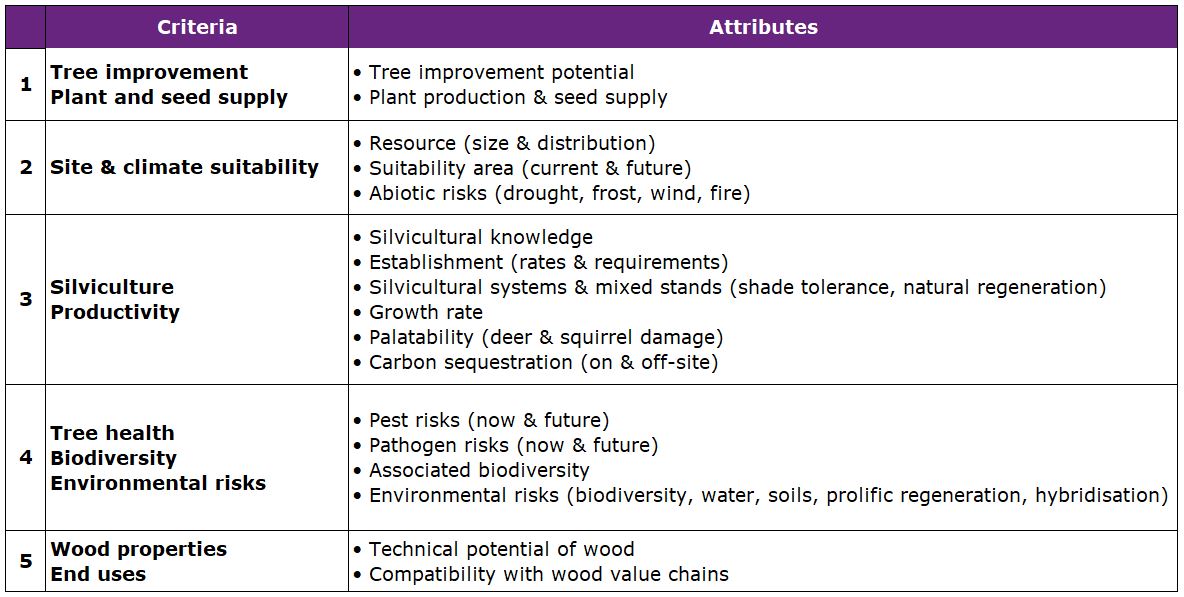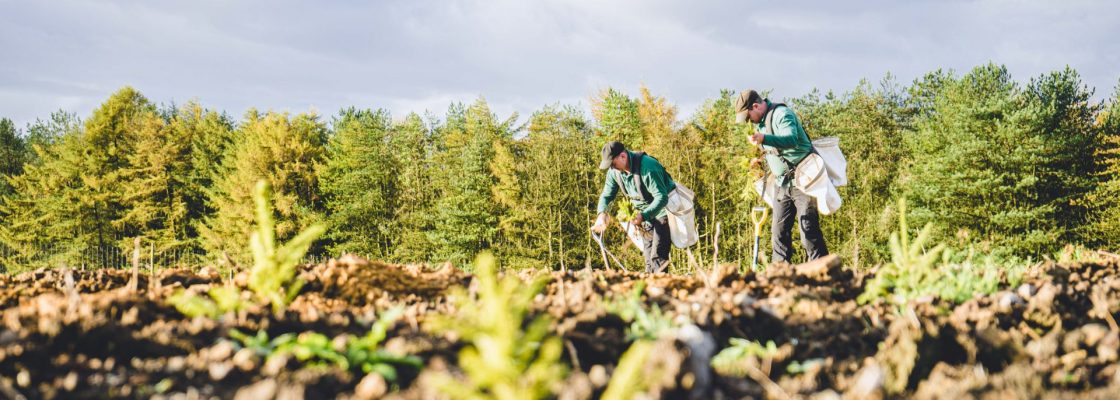Summary
Forest Research has developed an evaluation framework, in collaboration with Scottish Forestry, to assess the performance of tree species against a comprehensive set of criteria.
The framework was used with key stakeholders to select a shortlist of productive tree species for Scotland. The approach is now being extended to England and Wales.
In each country, the shortlists provide a focus for research and development to diversify the species composition of our forests and woodlands and increase their resilience to pests and disease and the effects of climate change.
Research Objectives
The objectives for this programme of research are to:
- develop an evaluation framework to compare the performance of a longlist of tree species, both now and in the future, using a comprehensive set of criteria
- use the framework to assess and prioritise the longlisted tree species
- collaborate with experts and stakeholders to select shortlists of productive species for each country in UK, providing a focus for coordinated investment across the forestry sector to diversify the range of species used in productive forestry
- identify the scientific evidence gaps that must be addressed to enable national deployment of shortlisted species and improve future prospects for other emerging species
- develop research and development strategies for tree improvement, silviculture and timber properties to encourage investment and collaboration with industry partners.
Latest Update
Work on the shortlist of productive tree species for Scotland was completed in September 2025. The shortlist included 28 tree species: 14 conifers and 14 broadleaves. The report can be downloaded from the downloads section.
Our Involvement
Forest Research is leading this programme of work, in collaboration with our funding bodies (Scottish Forestry, Defra and Welsh Government) and research partners (Forestry England, Edinburgh Napier University and UK Centre for Ecology and Hydrology).
Further Information
The UK forestry sector is currently dependent on a limited range of productive species, mainly spruce, making it particularly vulnerable to the threats associated with tree health and a changing climate. To address the problem, Forest Research was commissioned initially by Scottish Forestry to assemble the evidence required to select a shortlist of productive species for Scotland. The shortlist delivers a key action in Scottish Forestry’s Routemap to Resilience for Scotland’s Forests and Woodlands.
The approach is now being developed for use in England and Wales. In each country the shortlists provide a focus for strategic actions, coordinated across the forestry sector, to diversify the range of species used in productive forestry. They will allow joined up investment for tree breeding and product development, and give direction and guidance on future species selection for seed collectors, nurseries, foresters and processors. Activities across each country are being coordinated by the UK Forest Genetic Resources Group.
To select the shortlists, a comprehensive evaluation framework was used to compare the performance of around 70 tree species against multiple criteria (see table). By changing the weightings for each criterion in the framework, a prioritised list of species can be produced as a starting point for consultation.
A key strength of the project is the involvement of numerous experts and stakeholders in each country, representing all parts of the wood value chain, to ensure the final shortlists reflect their knowledge and experience as well as the available scientific evidence.
There are plans to develop the framework further into an accessible resource to support policymakers and forest managers, and as a platform for knowledge exchange, education and training.
Table: Criteria and attributes included in the evaluation framework







